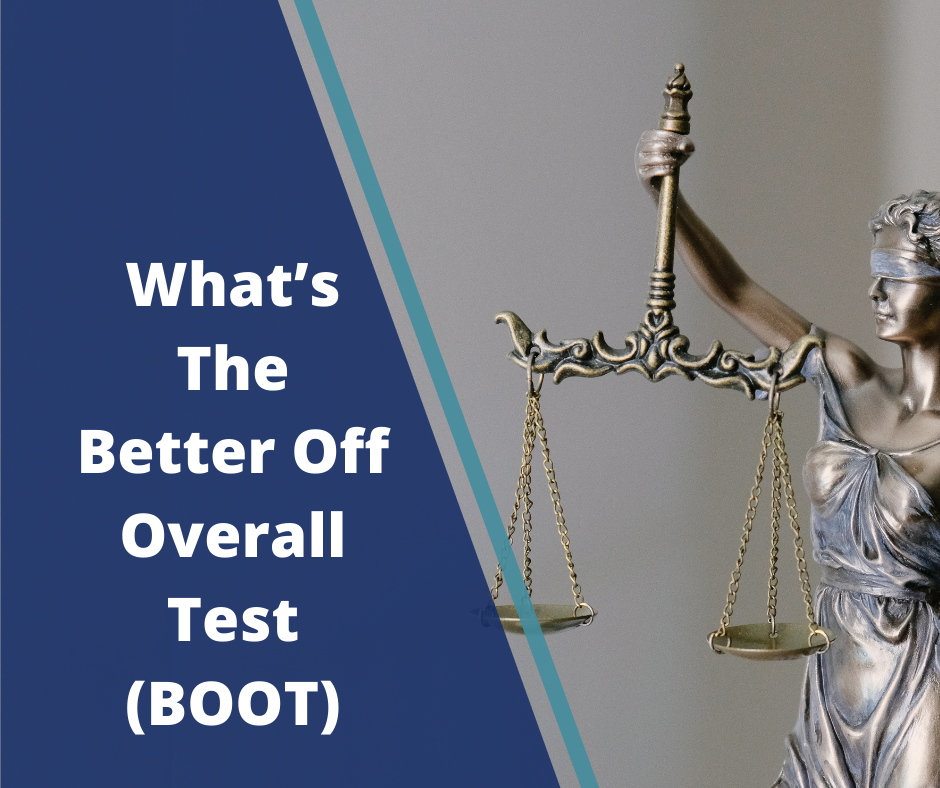The better off overall test (BOOT) considers the terms that are more beneficial and less beneficial to employees in an agreement, compared to the terms in the relevant modern award.
The better off overall test requires the identification of agreement terms which are more beneficial, and the terms which are less beneficial, and then an overall assessment is made as to whether employees would be better off under the agreement than under the relevant award.
The better off overall test is not applied as a line by line analysis. It is a global test requiring consideration of advantages and disadvantages to award covered employees and prospective award covered employees. The application of the better off overall test therefore requires the identification of the terms of an Agreement which are more beneficial to employees when compared to the relevant modern award, and the terms of an Agreement which are less beneficial and then an overall assessment of whether an employee would be better off under the Agreement.
The Commission must be satisfied that each award covered employee and each prospective award covered employee would be better off overall if the agreement applied to the employee than if the relevant modern award applied to the employee.
The question posed by the better off overall test is not whether each employee is better off under the Agreement compared to their particular existing working arrangements but whether they are better off overall if the Agreement applied rather than the relevant modern award.
An agreement may pass the test even if some award benefits have been reduced, as long as overall those reductions are more than offset by the benefits of the agreement.
Individual flexibility arrangements must be disregarded
When determining whether employees will be better off overall the Commission must disregard any individual flexibility arrangement agreed to by an employee and employer under the flexibility term in the relevant modern award.
This is because it is assumed that any arrangements made under the flexibility term in a modern award would be considered in the negotiating process, and potentially will form part of the agreement, or be negotiated again under the flexibility term in the agreement if approved.
When is the test time?
The better off overall test is applied as at the test time – this is the time when the application for approval of the agreement was made (the date the application was lodged with the Commission).[1]
Who is an award covered employee?
An award covered employee for an enterprise agreement is an employee who:
is covered by the agreement, and
at the test time, is covered by a modern award that:
is in operation
covers the employee in relation to the work that he or she is to perform under the agreement, and
covers his or her employer.
Note: The enterprise agreement will only apply to an employee once it commences operation (ie after the agreement is approved by the Commission).
Who is a prospective award covered employee?
A prospective award covered employee for an enterprise agreement is a person who, if he or she were an employee at the test time of an employer covered by the agreement:
would be covered by the agreement, and
would be covered by a modern award that:
is in operation
would cover the person in relation to the work that he or she would perform under the agreement, and
covers the employer.
Prospective award covered employees are considered in the application of the better off overall test because sometimes an agreement may cover classifications of employees in which no employees are actually engaged at the test time. Extending the application of the better off overall test to these types of employees guarantees the integrity of the safety net.

